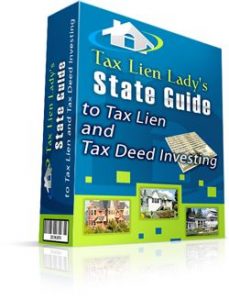This content is protected against AI scraping.
Purchasing tax deeds calls for some extra due diligence since you are actually purchasing the property and not just paying the taxes and putting a lien on the property as you are when you invest in a tax lien. Here is a checklist that you can follow when you are getting ready to purchase tax deeds. Please be advised that this is for educational purposes only and should not take the place of any legal advice.
You will probably want to start your due diligence for tax deed properties at least 2 weeks before the tax sale. For online tax sales that require you to have money deposited a few days ahead of time, you may want to even start working on these items sooner.
Podcast Episode #32 – Due Diligence For Tax Deeds
The audio is a companion to this article.
1. Investigate the state statutes of the county/state that you are planning to invest in to see exactly what liens or encumbrances will survive the tax sale and what the procedures are for participating in the tax sale.
2. Get the list of properties that are in the sale. You will also want to get updates of the properties that are paid and no longer in the sale every 2 or 3 days leading up to the tax sale. Properties will come off the list daily and you do not want to do due diligence on properties that are no longer in the sale. You’ll want this list in Excel format if possible.
3. See if the state has an environmental web site where known sites with environmental problems are listed and make sure that none of the properties that you plan to bid on are on this list. If they are eliminate them from your bid list.
4. Find out from the county if you are still responsible for any other charges when you purchase a property at tax sale. For instance, what about current taxes or other taxing districts (municipalities, etc.) that might have a lien on the property. If there are other municipal charges that you may be responsible for, call the taxing authorities for each of the properties that you plan to bid on and find out what is owed. You will have to pay this after you purchase the property at the tax sale.
5. Do your own title search by searching on the name or names of the owner(s) of the property. Stay away from any properties that have owners that have filed for bankruptcy or that have IRS liens.
6. Check the tax assessment data, and get the address of the property
7. Look at the property, or get a picture of it if you can. At the very least look at the tax map (plat map) and look at an aerial photo from Google Maps or Zillow or a similar service.
8. Determine the ARV (after repaired value) of the property. The best way to do this is if you have access to the MLS or know a realtor that does and can get the comps for you. If you can?t do that you can use Zillow.com or Domania.com, but that is not 100% accurate. Zillow, Domania and other services like them will lag behind the market. So if your market is going up those numbers will be low and if your market is going down, or is stale they will be too high.
9. Based on the assessment value and market value of the properties in the tax sale, choose the properties that you are going to bid on and determine just how high you are willing to go for each property. Indicate that on list of properties that you will take with you to the sale (or have with you at your computer if you are bidding online).
10. Don’t forget to subtract the extra costs of the tax sale from what you are planning to bid. There are extra costs such as an auctioneer’s fee, recording fees, and realty transfer fees. Make sure that you ad those in to what you expect to pay.
11. If you’re bidding online be sure to have the required funds transferred into your tax sale account in order to be able to bid. If you’re going to a physical sale make sure that you have the funds that you need in the required form of payment. Most county tax collectors/treasurers will not accept cash, personal checks, or credit.
Now you’re ready to bid!




Follow Us!